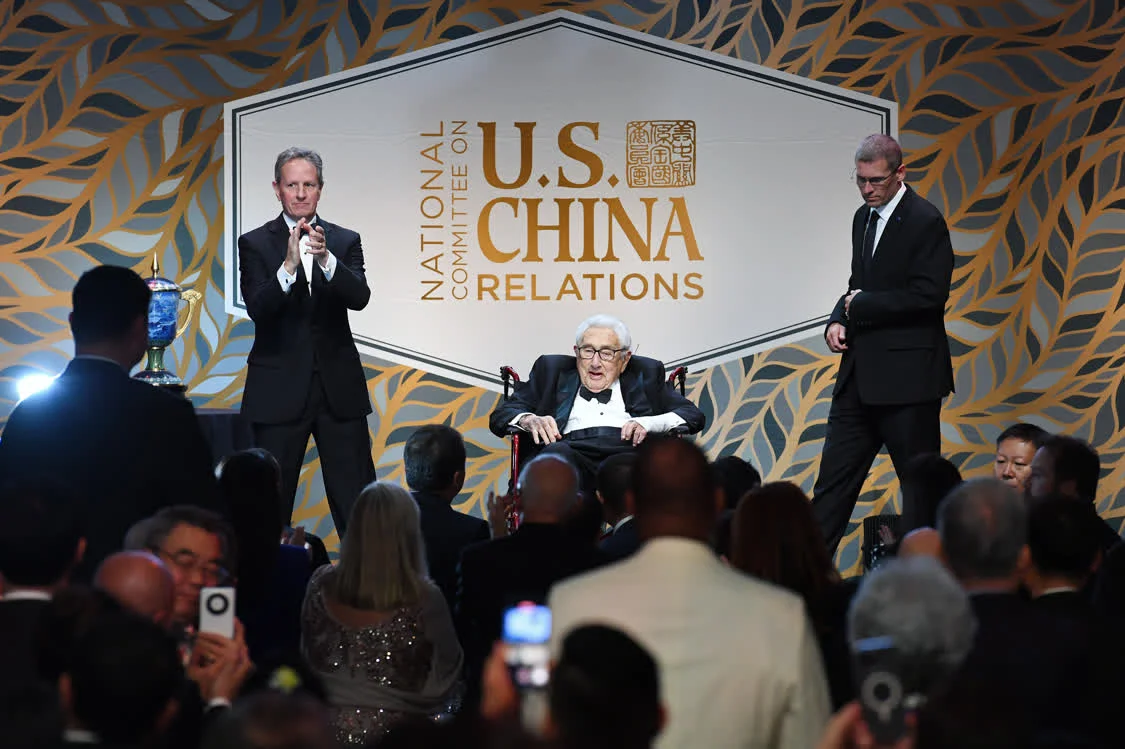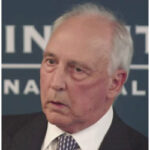風蕭蕭_Frank
以文會友澳前總理基廷:基辛格畢生致力於和平與平衡

參考消息網12月2日報道 澳大利亞“珍珠與刺激”網站12月1日發表題為《基辛格與世長辭:保羅·基廷的聲明》的文章,作者是澳大利亞前總理保羅·基廷,編譯如下:
我第一次見到基辛格是1971年在哈佛大學,當時他就在倡導應在外交政策中保持平衡和克製。
基辛格的偉大之處在於他的思想具有獨創性,摒棄了那時占主導地位的思維模式派生出的想法。
上世紀70年代,他與毛澤東和周恩來的開創性會晤改變了世界的戰略平衡,使中國遠離蘇聯,與美國達成戰略和解。他幫助美國政府製定的一個中國政策,至今仍是支撐美中兩國保持關係平衡的核心理念。
這也許是基辛格對世界和平的最大見解和貢獻。
多年來,我曾與基辛格多次會麵,並有幸讓他同意,在我擔任中國國家開發銀行國際顧問委員會主席的十年間出任副主席。國家開發銀行是中國重要的政策性銀行。在本世紀頭十年,當時基辛格已經80多歲了,他仍然定期出席國家開發銀行的會議。
他認為,亞太經合組織領導人非正式會議這個構想,代表著區域合作理念上的巨大飛躍。美國以前隻與歐洲進行過這種合作,但從未與亞洲進行過這樣的合作。
公眾評論會證明,基辛格就世界某些地區做出的決定是有爭議的。在他去世後,我們可能會聽到更多這樣的評論。
但在相對有限的時間內,他能夠通過談判實現停火並結束越南戰爭,並且在贖罪日戰爭後參與推動阿以和平進程,然後才有了卡特總統促成的戴維營協議,為中東和平製定了框架。
基辛格活到了100歲。對於一個直到去世前還在積極參與外交政策事務的人來說,這本身就是一項巨大成就。當今世界不太可能再出現像基辛格這樣的人物。他在不斷變化的世界格局中實時調整行動,但畢生致力於尋找他所追求的和平與平衡。(編譯/楊雪蕾)
The death of Henry Kissinger: Statement by Paul Keating
https://johnmenadue.com/the-death-of-henry-kissinger-statement-by-paul-keating/
I first met Henry Kissinger in 1971 at Harvard, where even then, he was extolling the virtues of balance and restraint in foreign policy.
Kissinger’s great strength was that he thought in original terms, eschewing the derivative thinking which so dominates patterns of thought these days.
His pathbreaking meetings with Mao Zedong and Chou En-lai in 1975 altered the strategic balance of the world by pulling China away from the Soviet Union into a strategic accommodation with the United States.
His development of the One China policy remains to this day the pivotal organising idea which underwrites the equilibrium between the world’s two greatest powers, the United States and China.
Perhaps above all else, this remains Henry Kissinger’s greatest insight and contribution to world peace.
I met Henry Kissinger many times over the years and had the honour of Henry agreeing to be deputy chair during my decade as chairman of China Development Bank’s International Advisory Council.
China Development Bank is the principal policy bank of the Chinese state. It underwrote nearly all the new Chinese cities as well as ambitious plans in slum clearance, ports and wharves, highways, telecommunications, fast trains, aged care and health facilities.
Even in the first decade of this century, when Henry was already in his 80s, he attended China Development Bank regularly where he and I were deputised to brief and discuss the outcome of the meetings with the Chinese premier and deputy premier.
The last time I saw him in Beijing, he paid me the compliment of telling me my conceptual approach to strategic policy most closely resembled that of his own and, at the time, that of Zbigniew Brzezinski, the US national security adviser, who actually put the Nixon/Mao accords into place under the presidency of Jimmy Carter, following Henry’s departure from the secretaryship of state.
He thought the idea of the APEC Leaders’ meeting represented a gigantic conceptual leap in regional cooperation of a kind the US had only formerly experienced with Europe – but never before with Asia.
Public commentary will attest to the controversial decisions that Henry Kissinger made in respect of a number of regions in the world, and in his demise, we will probably hear more of that.
But in a relatively limited period of time, he was able to negotiate a ceasefire and terminate the Vietnam War while engaging in Arab/Israeli peacemaking initiatives following the Yom Kippur War ahead of President Jimmy Carter’s Camp David accords with its framework for peace in the Middle East.
Henry Kissinger lived to a hundred. Itself a mighty achievement for someone so actively involved in foreign policy virtually right up until his death.
The international system is unlikely to see again so compelling a person as Henry Kissinger, certainly one constantly calibrating movements in the balance of world affairs and doing it in real time. But all the time searching for the peace and equilibrium to which he was so dedicated。
. Paul Keating was the prime minister of ustralia from 1991 to 1996.
Paul Keating was the prime minister of ustralia from 1991 to 1996.




